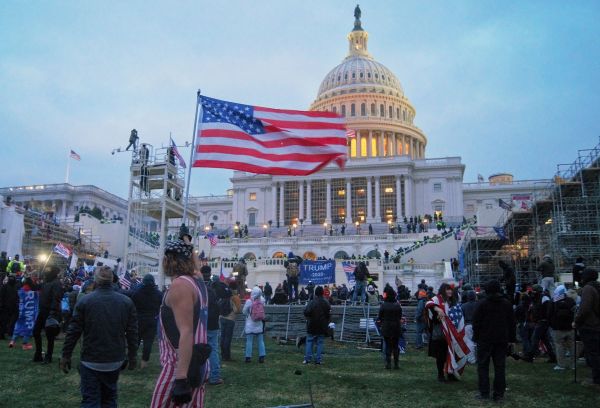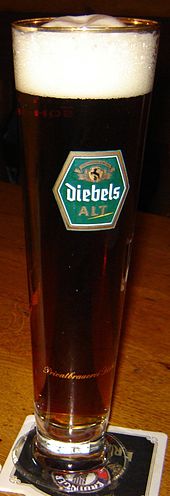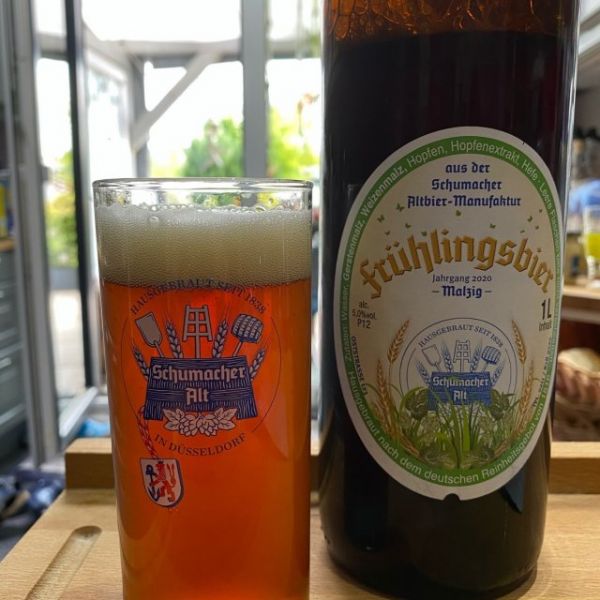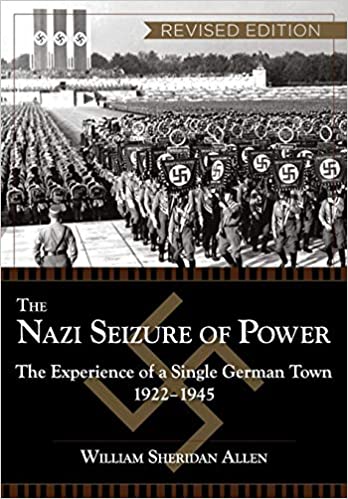Alt-right, Alt-left, or Old Beer?
What is the "Alt-Right"?
"Alt-right" is a sort of awkward hybrid, as hybrids go. The first part, "alt," abbreviated from "alternate" has a modern technological application in aviation and in computers. "Alt" refers to the alternate-flight-mode on some lines of aircraft—that offer two modes of flying: "Normal Law" and "Alternate Law", meaning that, if the normal coputerized commands fail, the pilot has to switch to "Alt-Law" and manually fly the plane.
So, aviation's use of "alt" must explain its use in politics. "Normal Law" in politics equates to constitutional law for Republicans and democracy for the Democrats. "Alt-law" equates to autocratic use of those political modes. The computerized programs in Normal-Law mode prevent a pilot from doing anything that jeopardizes the plane and its passengers. But if the pilot disables the Normal-Law mode and the support systems it enables, he can fly the plane any way he wants—even hijacking it. Hijacking a plane or hijacking a nation—the two events have a lot of parallel steps.
As a political term, "Alt Right" gained widespread usage during and after the victory of renegade presidential candidate Donald Trump in 2016. "Alt Left" gained use during the same period to describe the response of left-wing groups like Antifa, that opposed Trump and his Republican supporters. The increased use of "alt-" by average Americans during this period, and since, makes the ugly reality of America's political divide painfully obvious, with much of the slang rooted in hostility and contempt for the opposing political party. Several on-line entities claim authorship for "alt." Maybe they have some flight experience and decided that, since normal-law has kicked out, someone needs to govern by alt-law. The question really is whether the alt-law pilot wants to hijack the plane or save it? The truth is, either side could!
Alt-Bier
As a German speaker, I think of "Alt" as meaning mostly "old." German beer-drinkers can choose between Bier and Alt-bier. In Alt-bier, the brewer gives the yeast and malt special treatment. The resulting product has a different aroma and character. I'll take an Alt-bier any day over an Alt-right and Alt-left!
In the political context, it makes sense to see "alt" as, essentially, an old term in new clothing, rather than a word defining something new. Until the late 17th century, most nations had male leaders that they called King, König, Tsar, Sultan, or Doge. Sometimes, they governed brutally and senselessly, like Vlad the Impaler. Sometimes they implemented national concepts, such as "Republic." For centuries, the Italian cities Venice and Genoa governed as republics. They had dictatorial leadership under a Doge, but a consistent legal structure that provided upward mobility. Other nations like Great Britain and the Netherlands also implemented a republican form of government, with representation, in the 17th century that served as models for our own American government at the end of the 18th century.
So it pays to see "alt" in the context of recovering something old. After all, the Left sees the antecedents of the Alt-right as the KKK, the John Birch Society, or even the Nazis. To enable my readers to understand how the Left sees "Alt-right", I include a few quoted definitions:
- "In the US, (the Alt-right is) a right-wing ideological movement characterized by a rejection of mainstream politics and by the use of online media to disseminate provocative content, often expressing opposition to racial, religious, and gender equality."
(from Google's English Dictionary)
- "A paranoid fringe in our politics, steeped in racial resentment."
(from presidential candidate Hilary Clinton, 2016)
- "The alt-right, abbreviated from alternative right, is a loosely-connected, far-right, and white nationalist movement. A large online phenomenon, it originated in the United States during the 2010s."
(from Wikipedia)
The Southern Poverty Law Center gleaned a few quotes from Alt-right sources and posted them on its website in 2017. The quotes are supposed to show how Alt-rights define their own motives:
"Immigration is a kind of proxy war—and maybe a last stand—for white Americans, who are undergoing a painful recognition that, unless dramatic action is take, their grandchildren will live in a country that is alien and hostile.
(from the National Policy Institute, February 2014)
To be honest, I had never heard of the National Policy Institute before reading this; but I had never heard of the Southern Poverty Law Center, either. Sometimes hostile publications fan each other's flames to produce outrage—but produce mostly smoke. So many hostile organizations and publications—it seems a shame that, in the face of the disunity in our nation, both sides fan the flames, rather than depart onto separate turf, to govern themselves separately. America's inertia, caused by tradition, habit, and laziness, thwarts the obvious solution—the emergence of independent identities and separate nations.
The reality of America as a nation is less about tolerance and diversity—more about divisiveness, paranoia, and resentment. The American public splits apart over sharply divergent views about how to resolve problems; and I see one segment of the public trying to establish unassailable control of the other.
Here is another selection from the alt-right press included in the Southern Poverty Law Center post:
The New-left doctrine of racial struggle in favor of non-Whites only, a product of decolonization and the defeat of nationalists by egalitarians after WWII, must be repudiated and Whites must be allowed to take their own side in their affairs. A value system that says Whites are not allowed to have collective interest, while literally every other identity group can do so and ought to do so, is unacceptable.
(From The Right Stuff, January, 2016)
Is that all there is? I don't see mindless racism or homophobia. I see a human culture that feels threatened, with powerful media groups arrayed against it. If The Southern Poverty Law Center showed these quotes to the average Trump supporter, he would probably agree with most of what the National Policy Institute and The Right Stuff have written. These quotes reflect the views of perhaps 45% of the population of the country. That should concern forward-thinking people on both sides, who count on assimilation or reconciliation to steer the nation from conflict.
What is the Alt-left?
When I googled "Alt-left," few left-wing websites would even admit that there is an Alt-left. Wikipedia, for instance, has a lengthy article about the Alt-right, but none for the Alt-left. "What is the Alt-left?" Wired.com asks rhetorically. "For starters, not a thing." CNN adds, "What is the Alt-left? Experts say it's a made-up term."
Yes, that's true. Conservatives made it up as a response to left-wing movements like Antifa and Occupy Wall Street. Antifa portrays its actions as a response to fascistic, far-right terrorism. An unofficial post states, "Their willingness to use violence marks out Antifa from many other left-wing activists, although Antifa members denounce the use of weapons and violent direct action." Members "carry weapons like pepper-spray, knives, bricks, and chains, and they do not rule out violence."
This became clear when an Antifa member Willem van Spronsen, "a participant in various Antifa actions, attacked an ICE detention center . . . blew up a vehicle, threw Molotov cocktails, and was trying to ignite a propane tank, when he was fatally shot by police. . . . Antifa groups hailed him as a martyr." Others say he was suicidal and chose suicide-by-cop as a way out. Much of this information comes from a letter to the editor of The Bucknellian, the college-newspaper of Bucknell University, dated September 12, 2019.)
Gil Troy, writing in the August 28, 2017 issue of Time, reminds Leftists that they can "repudiate racism unequvocally, yet still recognize an 'alt-left' in America today. The term emphasizes a new breed of extremist—virtual, vitriolic, and violent."
More or less what the Leftists say about the Alt-right. As the old saying goes, if you engage in conflict long enough, you will eventually smell like your enemy. Isn't that the real problem for the Alts? Aren't they just the cutting edge of our hostile feelings toward our enemies in the opposing political party, proxy fighters for all Americans with a stake in the future?
Where are the Alts Leading Us Normal Americans?
The Alts might serve as proxy fighters for the rest of us, but I do not think we want to go where they want to go. In fact, the alts themselves may not know what they really want out of all this. Splitting hairs over the semantics of cobbled-together words like Alt-right and Alt-left—that are too dodgy or artificial to permit an organic definition—suggests that the nation has ventured into alien territory for most Americans, and that they are clutching at straws and struggling to recognize objectives in a reasoned way, with a coherent plan; but mostly I worry about the alts' motives and personal values. Are they rabblerousers airing unfocused discontent—revolutionaries looking for a director—like the characters from Pirandello's play?
Fussing over terms like "Alt" boils down to a diversion into semantics, and it deflects attention from the real threat, a civil war. Germany experienced a civil war during the 1930s, followed by years of civil unrest and name-calling. It degenerated into a revolution and brought the Nazi Party to power. Historians and teachers do not tell Americans that the Alts in Germany mostly wanted payback against enemies, not a coherent plan, as such, and that they turned both sides against the middle.
My readers must put aside their superficial knowledge about the Nazi Party and understand its parallels to the American experience, if we want to escape the fate of the Germans—the events that led to the Nazis gaining power—then we have to see the Nazi seizure of power in an informed light.
William Frederick Allen's book The Nazi Seizure of Power, first published in 1965, then updated and released again in 2014, gives us the Nazi takeover from the inside. It tells us everything important that we need to know about the Nazi experience—in the context of a mid-sized German town. Nazi Seizure will read like our epitaph if we don't do something about it. All America needs is a wrecked economy and high joblessness to complete the parallels:
Page 86: (The smear tactics) chief effect was to debase the nature of politics and to destroy the foundation of trust and mutual respect without which democracy cannot succeed. When politics becomes a matter of vilification and innuendo, people will eventually feel repugnance for the whole process, (and) yearn for a strong man who will rise above the petty and partisan groups.
Page 106: One final item emerged from the voting totals for the elections held in March and April, 1932. The Communist Party went into these elections with 115 votes, rose to 182, and then dropped again to 117. From this it seems clear that at least sixty-five Northeimers switched from the Communists to the Nazis.
Subsequent elections were to show increasing numbers switching back and forth between the two totalitarian parties. Obviously some Northeimers were ready by 1932 for any dictatorship, as long as it guaranteed revolution.
The text does not say it so explicity, but we can surmise that German voters opted for payback and destruction of an opposing party, rather than accommodating it in the spirit of tolerance and diversity. A dictatorship pays little attention to such bourgeois concerns. It typically acts to repress anyone it perceives as an enemy. We need to pay attention to the German experience, since it happened in real life to a nation very much like ours.





